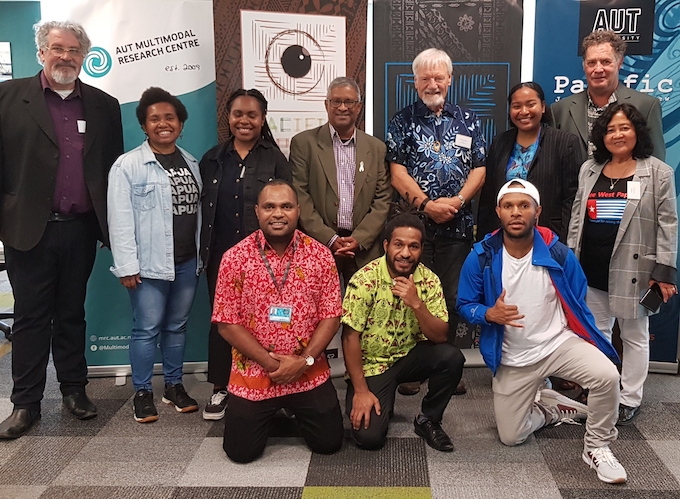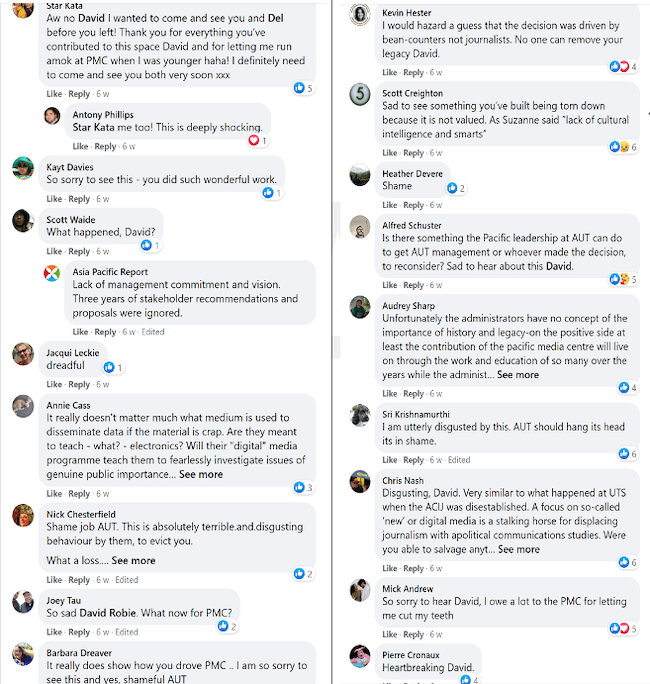COMMENTARY: A postgraduate researcher view by Ena Manuireva
Year 2020 was the annus horribilis worldwide due to the deadly coronavirus pandemic. Recently the Fiji government expelled University of the South Pacific vice-chancellor Professor Pal Ahluwalia after his claims in 2020 of financial mismanagement of the university by the former administration, close to the government.
It is still beyond belief that the government should interfere in the matters of an independent academic institution owned by 12 Pacific nations – not just the host country Fiji – and take such draconian and unjustified action against the vice-chancellor.
In New Zealand, across the road at the University of Auckland the management had its fair share of criticism for the purchase of a new house for vice-chancellor Dawn Freshwater at an exorbitant amount, prompting the auditor-general to write that Auckland University broke own rule in purchase of $5 million house.
Here, at Auckland University of Technology (AUT), the investigation into allegations of bullying and sexual harassment started in July 2020 and its subsequent Davenport independent review report legitimately highlighted many shortcomings that the first university of the new millennium in 2000 has failed to address in a timely fashion.
It is clear that the main lesson to be learned was “to be kind” to others, as often heard throughout the covid-19 pandemic by “aunty” Prime Minister Jacinda Arden. The reply from AUT’s vice-chancellor Derek McCormack was even more powerful and along the lines of promising to do better.
We all hope that the issues will be dealt with as swiftly and as diplomatically as possible in order to reinstate the reputation of our youngest university in the Pacific.
Those three events are serious setbacks to the academic realm in our part of the world and whether their effects have been felt locally or globally, they have generated seriously unwanted publicity.
AUT and an on-going saga: the PMC future
Following the Davenport recommendations, a seminar was organised by the Pacific Media Centre about future directions – and to say their goodbyes to Professor David Robie, director of the PMC for 13 years, who retired in December.

A retired University of the South Pacific development studies emeritus professor, Dr Crosbie Walsh, penned a tribute to David, saying he “has lived in the Pacific, been involved in Pacific human rights and media freedom issues, or taught journalism to Pacific Islanders and others for 40 years. He will be a hard man to replace”.
But that tribute didn’t dispel apprehensions about lack of a succession plan in the School of Communication Studies and the continued questions over the future of PMC more than three months later.
A lot has been commented about the issue of the suddenly empty PMC office (Outcry over signs of upheaval at Pacific Media Centre). Comments and questions still pour in on social media from worried students, sympathisers, television presenters, and former colleagues of the PMC about the whereabouts of this vital repository of knowledge, their new “office” and the future of the PMC team.
Here are sample quotes from two former students:
John Pulu (Tagata Pasifika anchor, TV1): “I just want to say mālō ‘aupito/thank you to Professor David, Del and team for the last 13 years of service at the Pacific Media Centre, AUT University. I hope the great legacy of PMC will be continued from here to help the next lot of broadcasters, journalists and academics who will cover or have interest in the Pacific region.”
Matt Scott (a reporter at Newsroom, TV3): “David Robie and the PMC provided me some of my first opportunities to step into the role of a journalist. Without the PMC, I feel that there will be a void not just at AUT but in journalism as a whole in this part of the world. The centre provides a space and platform for journalists covering an under-reported region that is in dire need of people fighting for truth, fairness and transparency. Removing the centre is a big step backwards.”
We have also seen support and anger at the lack of transparency regarding the future of the centre on Facebook:

Is AUT as a platform for Pacific news broadcasts about to lose its audience?
An in-depth article from former New Zealand Herald editor-in-chief Gavin Ellis has magnified many of the issues regarding the relationship that the PMC has with the Faculty of Design and Creative Technologies (DCT), or its School of Communication Studies (SCS).
One of the most salient issues has been the autonomous status of the PMC. Quoting the Australia Asia Pacific Media Initiative (AAPMI) which described the PMC as “the jewel in AUT’s crown”, it should enjoy its own independence, a condition that AUT might not want to ignore if they want to avoid the loss of the centre.
Or maybe the future of PMC should actually be to break away to survive, as Ellis advocates.
Similarly, a newly published article from Spinoff by Teuila Fuatai recounts the genesis of the issue from March 2020 to post Professor Robie’s retirement in December, highlighting the lack of transparency in this matter and the long awaited appointment of a new director.
For my part and based on the students’ outpouring of support, the worrying issues are twofold: First, is the “partnership” issue raised in an answer by Dr Rosser Johnson, head of the SCS, who presented a 100 percent commitment and the exponential work that would now be able to be accomplished in the new era of the partnership PMC-SCS.
What is missing is the idea of continuity that is being engulfed in what Professor Robie quotes as “regime change” with a determined effort to sideline those who had contributed so much to the development of the centre over the past 13 years.
In his view, this means “no continuity, no institutional memory or history and zero opportunities for the students”.
Second, from the students’ perspective: We have witnessed across New Zealand universities carrying out cost-cutting exercises triggered by the pandemic due to the lack of revenue usually brought in by the international students. However, it is not without legitimate suspicion that PMC might be one of those targets of this financial fix.
It is also the question posed by students who are at the centre of this issue: what about developing our Pacific people in media and journalism? Under representation of Pacific people (and Māori for that matter) who are experts in their communities in media spaces is well documented.
What the PMC has created is a pool of students and contributors who have an invaluable relationship to and inside knowledge of the geopolitical issues surrounding the Pacific basin and the Asian region.
This pool of “grassroots” contributors will certainly add a plus value to the overarching entity, be it a university or an independent institution, in terms of reporting facts.
Ena Manuireva, born in Mangareva (Gambier islands) in Ma’ohi Nui (French Polynesia), is a language revitalisation researcher at Auckland University of Technology and is currently completing his doctorate on the Mangarevan language. He is also a campaigner for nuclear reparations justice from France over the 193 tests staged in Polynesia over three decades.

Article by AsiaPacificReport.nz






